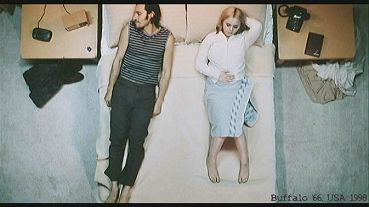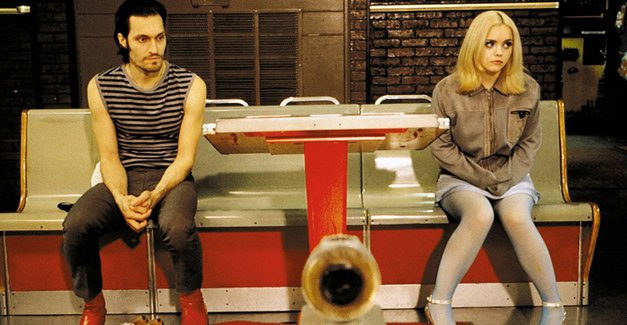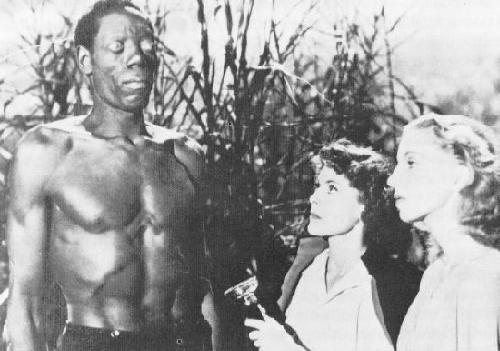From the Chicago Reader (August 7, 1998). — J.R.


Buffalo ’66
Rating * Has redeeming facet
Directed by Vincent Gallo
Written by Gallo and Alison Bagnall
With Gallo, Christina Ricci, Anjelica Huston, Ben Gazzara, Kevin Corrigan, Mickey Rourke, Roseanna Arquette, and Jan-Michael Vincent.

Vincent Gallo has proved himself a good actor in many films — in Arizona Dream, The Funeral, and several Claire Denis movies. But the first feature in which he functions as director, cowriter, composer, and star is a pathological curiosity. Candidly and painfully personal, Buffalo ’66 seems to spring from the kind of fantasies that inform movies almost exclusively — though vanity publishers offer similar opportunities. For me the film creates more embarrassment than sympathy, but at least it’s a kind of embarrassment that’s instructive. Its genre — narcissistic self-hatred reconfigured as a sense of entitlement — is far from exclusive to American movies, though it’s especially common in American independent efforts. Part of the self-hatred comes from the sense that it’s a disgrace to be poor, a sense more common in this country than in most other places, and poverty gives the film a distinctive musty odor — an ambience evident in such settings as a bowling alley and a cheap motel room. Read more

Sergei Eisenstein’s controversial, unfinished trilogy, with a Prokofiev score and a histrionic, campy (albeit compositionally very controlled) performance in the title role by Nikolai Cherkassov (1945). The ceremonial high style of the proceedings has been interpreted by critics as everything from the ultimate denial of a cinema based on montage (under Stalinist pressure) to the greatest Flash Gordon serial ever made. Thematically fascinating both as submerged autobiography and as a daring portrait of Stalin’s paranoia, quite apart from its interest as the historical pageant it professes to be, this is one of the most distinctive great films in the history of cinema — freakishly mannerist, yet so vivid in its obsessions and expressionist angularity that it virtually invents its own genre. 184 min. In Russian with subtitles. (JR)
 Read more
Read more
This is the uncut version of a book review written for Stop Smiling no. 27 in 2006 (“Ode to the Midwest”), which had to be cut at the last minute due to space problems. My thanks to editor James Hughes for granting me permission to print the fuller version here. –J.R.

ICONS OF GRIEF: VAL LEWTON’S HOME FRONT PICTURES by Alexander Nemerov. Berkeley: University of Calornia Press, 2005. 213 pp.
By Jonathan Rosenbaum
Most film criticism has been hampered by the habit of dealing with narrative movies strictly and exclusively in terms of their stories. What’s overlooked by this practice is the fact that virtually all films are made up of nonnarrative as well as narrative elements—what might be described as both persistence and fluctuation, or nonlinearity as well as linearity. Even though we often prefer to think we experience movies only as unfolding narratives—which is apparently why what most people mean by “spoilers” always relate to plot and not to formal moves—how we remember these movies is part of that experience, and this partially consists of static images.
Consequently, it could be argued that we need more art historians writing about movies and fewer literary critics who operate from the model of narrative fiction. Read more






